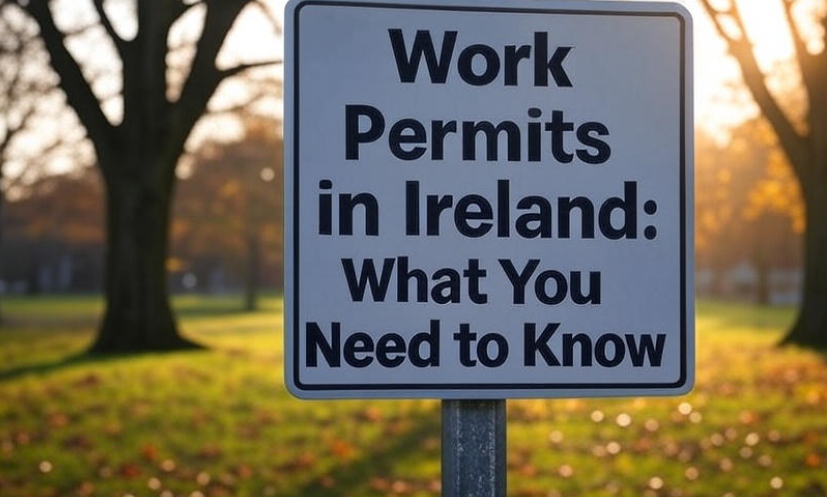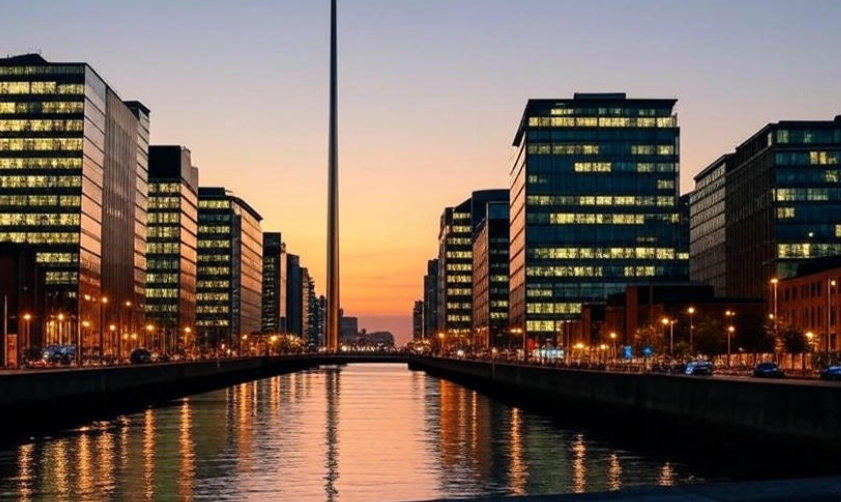Ireland has become one of the most attractive places in Europe for job seekers. People from all over the world are choosing it not only for career growth but also for a better lifestyle. The country is home to global companies, stunning landscapes, friendly locals, and a growing economy. If you’re thinking about moving to Ireland for work, it can feel a little overwhelming at first. But don’t worry — if you take it step by step, the process is actually quite clear.
Below, I’ll break everything down in very simple English so that anyone can understand. This guide will cover visas, job hunting, housing, cost of living, and more. Think of it as your friendly roadmap.
Why Ireland?
Before diving into the steps, it’s worth asking: why Ireland? Well, the country has a lot to offer:
-
A booming tech industry (Google, Meta, Apple, Microsoft are all here)
-
Competitive salaries compared to many EU countries
-
A strong work-life balance culture
-
English as the main language (huge advantage for global workers)
-
Beautiful nature, from green countryside to coastal towns 🌿
So, if you’re dreaming of a career change with a mix of modern opportunities and traditional charm, Ireland ticks the boxes.
Step 1: Research the job market
Don’t rush to book your ticket yet. The first step is always to research jobs. Different sectors in Ireland are booming, but not every field has equal demand. Some of the most in-demand roles are:
-
IT & Software Development
-
Finance & Accounting
-
Healthcare (nurses, doctors, caregivers)
-
Engineering
-
Education
-
Hospitality & Tourism
Here’s a quick table to give you an idea of average salaries (these can vary by experience, but it gives a ballpark figure):
| Job Role | Average Annual Salary (€) |
|---|---|
| Software Developer | 45,000 – 65,000 |
| Nurse | 35,000 – 50,000 |
| Accountant | 40,000 – 55,000 |
| Teacher | 32,000 – 48,000 |
| Hospitality Staff | 22,000 – 30,000 |
👉 Tip: Look at Irish job portals like Jobs.ie, IrishJobs.ie, and LinkedIn to see what’s trending.
Step 2: Check visa requirements
Unless you’re an EU/EEA citizen, you’ll need a work visa. Ireland mainly offers two popular types:
-
Critical Skills Employment Permit – For highly skilled jobs in demand (like IT, engineering, healthcare). It makes getting permanent residency easier.
-
General Employment Permit – For other types of jobs where employers prove they couldn’t find a local candidate.
Important note: you usually need a job offer before applying for a permit. That’s why Step 1 is so important.
Step 3: Apply for jobs and secure an offer
Once you’ve done your research, it’s time to apply. Irish recruiters prefer CVs that are short, clear, and to the point. Keep it under two pages.
-
Highlight achievements, not just responsibilities
-
Tailor your CV for each role
-
Use simple formatting (no fancy graphics unless it’s a creative role)
Employers in Ireland often ask for a cover letter too. Think of it as your chance to show personality — explain why you’re interested in both the role and Ireland itself.
Step 4: Apply for your visa/work permit
When you have a job offer, your employer will usually help you apply for the work permit. You’ll need:
-
A valid passport
-
A signed employment contract
-
Proof of qualifications
-
Application fees
Processing times vary but can take 6–12 weeks, so be patient.
Step 5: Plan your move
Here’s where things get real. Once your visa is approved, it’s time to plan relocation. You’ll need to think about housing, travel, and finances.
Housing in Ireland is one of the biggest challenges because demand is high, especially in Dublin. Rents can feel shocking if you’re coming from a cheaper country. For example:
| City | Average Monthly Rent (1-bedroom) |
|---|---|
| Dublin | €1,700 – €2,200 |
| Cork | €1,300 – €1,600 |
| Galway | €1,100 – €1,400 |
| Limerick | €950 – €1,200 |
💡 Tip: Some newcomers choose to live outside the main cities and commute. Trains and buses are reliable, though commuting adds time.

Step 6: Open a bank account
Most employers in Ireland pay salaries directly into bank accounts. You’ll need:
-
Passport
-
Proof of address (a rental agreement or utility bill)
-
PPS Number (Personal Public Service Number, like a tax ID)
Banks like AIB, Bank of Ireland, and Revolut are popular options.
Step 7: Get your PPS Number
This is super important. Without a PPS number, you can’t get paid or access public services. To apply, you’ll need:
-
Proof of identity (passport)
-
Proof of address
-
Proof of employment (job contract)
You can apply online and then attend an appointment if required.
Step 8: Adjust to Irish work culture
Once you’ve started working, you’ll notice some cultural differences. Irish workplaces are friendly and informal, but also professional. A few things to know:
-
Punctuality is valued, but small delays are often forgiven
-
Work-life balance is respected — long hours are not encouraged
-
People like light humor, even in professional settings
-
Teamwork is very important 🤝
Step 9: Healthcare and insurance
Ireland has both public and private healthcare. As a worker, you’ll have access to the public system, but many expats still buy private insurance for faster service. Companies like VHI, Laya Healthcare, and Irish Life are popular.
Step 10: Settling in socially
Moving to a new country is not just about work. You’ll need to build a life. Ireland is full of social clubs, sports activities, and friendly pubs where people meet. Don’t be shy to strike up a chat — Irish people are famously welcoming.
Some quick tips to make life easier
-
Always carry a raincoat ☔ (yes, it rains a lot!)
-
Learn a few local phrases like “craic” (fun, good times)
-
Get a Leap Card for cheaper travel in cities
-
Grocery shopping is cheaper in Lidl and Aldi compared to others
Estimated Timeline for Moving to Ireland
| Step | Average Time Needed |
|---|---|
| Job search & interviews | 1–3 months |
| Visa/permit processing | 2–3 months |
| Finding housing | 2–6 weeks |
| Moving & settling in | 1–2 months |
So overall, expect at least 6 months from job hunt to being fully settled.
FAQs about moving to Ireland for work
Q: Do I need to know Irish (Gaelic) to work there?
No, English is the main language of business. Irish is spoken in some regions (Gaeltacht areas), but not required for most jobs.
Q: Can I bring my family with me?
Yes, with certain work permits (like Critical Skills), your spouse and children can join you. They may also get work rights.
Q: Is it easy to get permanent residency?
After 5 years of legal residence, you can usually apply for long-term residency. With a Critical Skills permit, the process is smoother.
Q: How expensive is daily life?
Groceries and utilities are manageable, but housing is the biggest expense. Many people share apartments at first to save money.
Q: Are Irish people welcoming to foreigners?
Yes! Ireland has a reputation for friendliness. You’ll likely find it easier to make friends here compared to many other countries.
Final Thoughts
Moving to Ireland for work is a big decision, but if you take it step by step, it’s absolutely doable. From securing a job offer and visa to settling into the Irish lifestyle, the journey is full of learning and growth. And remember — it’s not just about work. Ireland’s unique culture, landscapes, and people will make the move one of the most rewarding experiences of your life. 🍀




